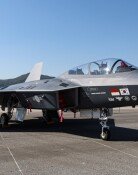Rough Departure of MBs Economic Team
The Lee Myung-bak administrations first economic team led by Strategic Planning and Finance Minister Kang Man-soo, who was officially nominated yesterday, is now put on the test board.
○ Record Low Dollar Value
As experts predict that the U.S. Federal Reserve Board will make an additional rate cut, the U.S. dollar depreciation has been worsening.
In New Yorks foreign exchange market, the euro rose by 0.48 percent ($0.0073) against the greenback from a day ago to close at $1.5194 on Thursday. The euros exchange rate against the dollar has set a record for three consecutive days. During the day, the exchange rate even soared to $1.52 per euro.
Moreover, the dollars value against other major currencies including the Swiss franc and the Japanese yen set new lows on the same day.
Wall Street analysts predict that the dollar will keep depreciating and the foreign currencies exchange rate against the dollar could go up as high as $1.55-1.58 per euro. Some experts even analyze that the dollars weakening status as the global reserve currency has been called into question since nations in Asia and the Middle East have been opting to avoid the dollar.
○ Oil Prices Surge above $100
A weakening dollar has been raising prices of oil and gold, which have been traded in dollar. Speculative funds have also contributed to the price hike in oil and gold.
In the New York Mercantile Exchange, the price of crude oil for April delivery closed at a new high of $102.59 per barrel on Thursday, up $2.25 from a day ago.
Along with the weak dollar, worries over the global inflation have spurred gold prices to skyrocket.
In the NYMEX, gold futures for April delivery rose 0.7 percent ($6.5) from a day ago to close at $967.5 per ounce, shattering all the previous records.
In short, gold prices have already gone up 13 percent in 2008, after rising 31 percent last year.
○ Korean Economy Facing Challenges
The rising prices of oil and gold put burden on the Korean economy from a variety of aspects.
Most of all, rising prices of imported oil will inevitably aggravate the current account deficit. Given Korea has already suffered from the snowballing service deficit, the current account deficit could impose heavy burden on the economy.
Koreas current account deficit reached $2.6 billion in January, partly due to the soaring oil prices, staying in the red for two months in a row. The amount of deficit of January was the highest in 11 years since January 1997, when it reached $3.13 billion.
Rising import prices have also affected consumer prices in Korea. Given consumer prices grew 3.9 percent in January, oil price hikes could present difficulties with the government in dealing with economic issues.
Even though the Korean won has slightly appreciated against the dollar, it remains to be seen how much it would contribute to buffering shocks from the rising import prices. Worse yet, the appreciation of the won negatively affects exports, though it helps stabilize prices domestically.
The rising prices and growing current account deficit certainly result in slowing down consumption and the economic growth rate. The government estimates for every 10 percent increase in global oil prices, Korea will lose 0.2 percentage point in its economic growth rate.
Gwon Sun-woo, a senior researcher of the Samsung Economic Research Institute, said, The Korean economy seems to face challenges from all quarters including growth, prices and international balance. It has no choice but to boost its competitiveness through deregulation and opening.
higgledy@donga.com havefun@donga.com







